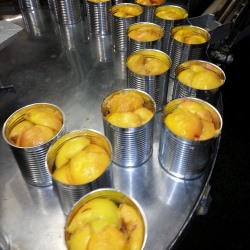SHELF LIFE EVALUATION SERVICES

Overview
FIRI Consulting offer Shelf Life Evaluation Testing Services for various food products to assist with the determination of ‘sell by’ dates and ensure that the product is acceptable and meets consumer expectations.
A product reaches the end of its shelf life when it no longer maintains the expected quality desired by the consumer.
The term ‘shelf life’ extends from when there is no acceptable change in a product, to where a pre-determined degree of acceptable change has occurred in a certain characteristic, such as spoilage, flavour, texture, appearance and functionality.
Product Characteristics Affecting Shelf Life
Spoilage
Microbial spoilage occurs in products which provide an environment that supports microbial growth, or are subjected to contamination during storage.
Chemical spoilage occurs through the leaching of chemicals, or similar reactions, promoted by long-term contact with packaging materials.
Texture
Products containing similar ingredients don’t necessarily exhibit similar textures. Water contributes greatly to a product’s texture. Staling, breakdown of gel structures, phase separation, water activity, moisture migration and crystallisation all contribute to textural changes during storage.
Appearance
An unacceptable appearance in colour resulting in browning or fading, is caused by fat and/or moisture migration and chemical reactions. Other processes affecting appearance making it undesirable during storage include surface crystal formation, phase separation, syneresis and caking.
Flavour
Off-flavours developed during storage are often due to chemical reactions or microbial growth. Rancidity occurs as a result of oxidative reactions and produces off-flavours.
Functionality
A product is considered unacceptable and unusable when it loses its functional properties such as vitamin-fortified products losing their potency, or chemical leavening agents losing the ability to produce gas.
Shelf Life Trials
Real time Shelf Life Trials are always recommended, but where a particularly long shelf life is desired, accelerated shelf life trials can be used to provide an indication as to whether the required shelf life is likely to be achieved.
Acceleration of storage under normal conditions is achieved by elevating the temperature above ambient. A temperature of 37°C is commonly used for accelerated trials of products normally stored at ambient temperature.
Although this is generally effective for chemical reactions, microbial or enzymatic changes cannot be simulated in this way and melting of fats can also be problematic at higher temperatures.
For this reason, guarantees of actual shelf life cannot be given based on accelerated trials due to the complexity of food products, which may not allow accurate prediction. Therefore a real-time shelf life should always be conducted on completion of product development.

